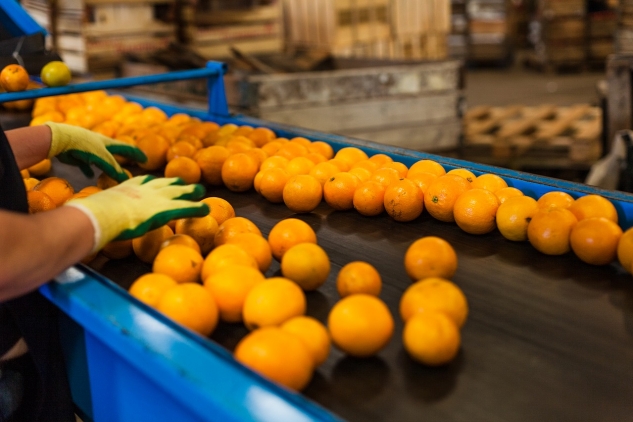
A Modern Slavery Act for Australia?
In 2007 I was a federal prosecutor at the Commonwealth Director of Public Prosecutions in Sydney when the first ever case of trafficking for labour exploitation was prosecuted in Australia. The case, R v Rasalingham, involved the exploitation of a young Indian man in a chain of restaurants in the Blue Mountains, West of Sydney, involving unpaid work for up to 15 hours a day, 7 days a week. The trafficker Rasalingham was convicted but sentenced to just four months imprisonment, with immediate release.
In the 10 years since Rasalingham’s prosecution, fewer than 20 people have been convicted in Australia for human trafficking or slavery offences. Yet the exploitation of migrant workers is reportedly rife, particularly in the agricultural, restaurant and construction industries. Australia’s current response to trafficking for labour exploitation is clearly lacking, so is a new approach required, and if so, is the UK Modern Slavery Act a good model?
Modern Slavery in Australia
The issues of human trafficking, slavery and slavery-like practices (often collectively called ‘modern slavery’) have received increasing attention from Australian media and institutions in recent years. In 2013 the Joint Standing Committee on Foreign Affairs, Defence and Trade conducted an inquiry into ‘Modern Day Human Trafficking’ that made key recommendations for the support and compensation of trafficking victims. In the same year the criminal law in Australia was amended to add new offences relating to forced marriage and forced labour. In 2014 the Australian Government also announced its new National Action Plan to Combat Human Trafficking and Slavery (2015-2019), which identified seven key areas for focus, including labour exploitation in supply chains.
Australia already has a significant amount of legislation addressing modern slavery. Human trafficking, forced labour, slavery and servitude are all crimes under the Criminal Code attracting heavy penalties. Yet nationally, the rates of investigation and prosecution of trafficking and modern slavery offences in Australia is low. Between 2004 and 2013 the Australian Federal Police undertook approximately 375 investigations and secured 17 convictions for human trafficking, forced labour and slavery offences. However, as in the UK, experts suggest that the cases identified are just the tip of the iceberg, and that much higher rates of exploitation exist, particularly in certain high-risk industries.
Australia also has extensive labour protection legislation at both the state and federal levels. However the enforcement of the federal labour legislation is the remit of the Fairwork Ombudsman, which only investigates a small number of cases of severe or systemic labour abuses each year, and in 2015 did not refer any of those cases to police for criminal investigation. There is a clear gap in both the protection of vulnerable workers and the punishment of exploitation in Australia that needs to be addressed.
A Modern Slavery Act for Australia?
In February this year, the Australian parliament launched an inquiry into establishing a Modern Slavery Act in Australia, in order to strengthen Australia’s law and policy response. The inquiry seeks to gather evidence of the nature and extent of modern slavery in Australia, and to identify international best practice in addressing slavery. In particular, the inquiry specifically references the UK Modern Slavery Act and its transparency in supply chains provision as a model.
The UK Modern Slavery Act certainly has some important and positive features, for which FLEX and others campaigned hard to include, but is it the answer to Australia’s labour exploitation problem?
At FLEX we think that an Australian Modern Slavery Act could provide some important measures to address severe labour exploitation, but in order to do so it must be two things: 1) It must be an Act that places as much emphasis on prevention of exploitation and protection of victims as it does on prosecution, and 2) It must be part of a much broader effort to address migrant worker vulnerability and exploitation in the Australian work force.
On the first point, the Australian Act should follow but go further than the UK Act on key protection measures such as compensation of victims and the provision of victim support. For example, while the UK Act provides for compensation for victims whose exploiters are prosecuted and convicted, the Australian Act should ensure compensation for all victims, regardless of whether their exploiter happens to have been convicted, as is so rarely the case.
The Australian Act should also pave the way for stronger and more comprehensive enforcement of labour standards throughout the labour market. In the UK, the Modern Slavery Act led to the expansion of the UK’s primary labour inspectorate, the Gangmaster’s Licensing Authority (the GLA, now the Gangmaster’s and Labour Abuse Authority, GLAA), including strengthening its powers and extending its remit into new labour sectors. However the chronic under-resourcing of the inspectorate, an issue shared by the Fairwork Ombudsman, undermines the potential of both agencies to proactively identify and protect vulnerable workers.
Which leads to the second point: unless Australia is seriously prepared to properly protect migrant and other vulnerable workers, a Modern Slavery Act will be of limited effect in tackling labour exploitation in Australia. In particular, there must be a comprehensive effort to reduce the vulnerability of migrant workers who are tied to their employers through 457 visas, or whose visa status is used against them, and who currently lack the support and protection to enforce their labour rights. As in the UK, Australian political rhetoric that blames migrant workers for ‘taking jobs’ from locals, that threatens deportation and refuses rights and entitlements for undocumented workers, creates a culture in which exploited migrant workers are unlikely to report abuse.
In this way the issues at stake in Australia really mirror those in the UK – it is now the Australian Government’s turn to decide if it will prioritise the demonisation of migrant workers or their protection in the fight against modern slavery.
Read FLEX’s full submission to the Inquiry into establishing a Modern Slavery Act in Australia here.
